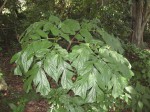Anchomanes
Description of the genus
Links to taxa: View: living plant images - herbarium specimen images - all images for this genus
| Species | FZ divisions | Content |
| abbreviatus Engl. | N | Description, Image |
Other sources of information about Anchomanes:
Our websites:
Flora of Burundi: AnchomanesFlora of Zambia: Anchomanes
External websites:
African Plants: A Photo Guide (Senckenberg): AnchomanesBHL (Biodiversity Heritage Library): Anchomanes
EOL (Encyclopedia of Life): Anchomanes
GBIF (Global Biodiversity Information Facility): Anchomanes
Google: Web - Images - Scholar
iNaturalist: Anchomanes
IPNI (International Plant Names Index): Anchomanes
JSTOR Plant Science: Anchomanes
Mansfeld World Database of Agricultural and Horticultural Crops: Anchomanes
Plants of the World Online: Anchomanes
Tropicos: Anchomanes
Wikipedia: Anchomanes
